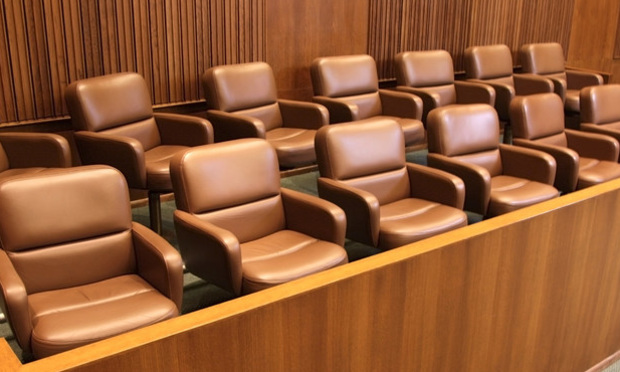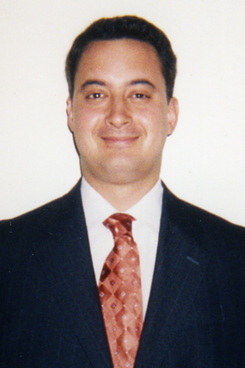John R Higgitt

November 21, 2017 | New York Law Journal
Libby Harrison, Unheralded Legal Scholar and Unsung HeroOn November 1, 2017, Albany attorney Lisabeth—Libby—Harrison died at the age of 69. Most members of the New York bench and bar do not recognize Libby's name. Given her substantial contributions to New York law, that is both unfortunate and unjust.
By David Demarest, Leon D. Lazer, and John R. Higgitt
8 minute read

April 06, 2015 | New York Law Journal
The Perfect Ending to a Jury Trial: a Perfected VerdictJohn R. Higgitt writes: Any notion that the steps in the refinement process of a jury verdict—the open-court announcement of the verdict by the foreperson, the polling of the jury, and the entry of the verdict—are mere minutiae was dispelled by the Court of Appeals in 'Duffy v. Vogel', where the court concluded that the failure of a trial court to poll the jury may require a new trial.
By John R. Higgitt
13 minute read

April 03, 2015 | New York Law Journal
The Perfect Ending to a Jury Trial: a Perfected VerdictJohn R. Higgitt writes: Any notion that the steps in the refinement process of a jury verdict—the open-court announcement of the verdict by the foreperson, the polling of the jury, and the entry of the verdict—are mere minutiae was dispelled by the Court of Appeals in 'Duffy v. Vogel', where the court concluded that the failure of a trial court to poll the jury may require a new trial.
By John R. Higgitt
13 minute read

February 27, 2015 | New York Law Journal
Avoiding the Conclusory When Preparing Expert AffidavitsJohn R. Higgitt writes: The qualifications of the expert, the facts underlying the opinion, the basis of the opinion, and the opinion itself—these are the essential elements of an expert's affidavit. Given the stakes on a summary judgment motion, counsel must scrutinize her expert's affidavit to ensure that it contains each of these elements.
By John R. Higgitt
12 minute read

February 26, 2015 | New York Law Journal
Avoiding the Conclusory When Preparing Expert AffidavitsJohn R. Higgitt writes: The qualifications of the expert, the facts underlying the opinion, the basis of the opinion, and the opinion itself—these are the essential elements of an expert's affidavit. Given the stakes on a summary judgment motion, counsel must scrutinize her expert's affidavit to ensure that it contains each of these elements.
By John R. Higgitt
12 minute read

August 05, 2013 | New York Law Journal
Potential Change in Practice With CPLR 3211(a)(7)John R. Higgitt, a principal court attorney to the Administrative Judge in the Bronx, writes: Motions to dismiss a complaint under the failure to state a cause of action statute are common. But can a defendant use evidence on an (a)(7) motion to challenge a properly pleaded cause of action and obtain dismissal of the cause of action based on that evidence? Up until recently, the answer to that question was "yes."
By John R. Higgitt
11 minute read

October 02, 2013 | New York Law Journal
Requests to Extend Deadlines and the Reach of the CPLRJohn R. Higgitt, a principal court attorney to the Administrative Judge in the Bronx, writes that later this fall, the Court of Appeals may have occasion to provide guidance on a curious question of New York practice with potentially far-reaching implications: May CPLR 2004, which allows a court to extend many deadlines, be applied to a provision of law found outside of the CPLR?
By John R. Higgitt
12 minute read

April 12, 2012 | Law.com
10 Tips to Improve Your Motion PracticeIn light of the time and effort attorneys must expend to make a motion and the potential stakes involved, attorney John R. Higgitt offers 10 simple tips to improve the quality of motion papers, ensure that the court considers the substance of the arguments and evidence, and increase the likelihood that the client obtains a favorable result.
By John R. Higgitt
13 minute read

April 03, 2012 | New York Law Journal
Ten Tips to Improve Your Motion PracticeJohn R. Higgitt, a principal court attorney to Justice Douglas E. McKeon, Administrative Judge for Civil Matters in the Bronx, writes: Every day a healthy stream of motions, cross motions and ex parte applications pour into courthouses. Given the time and effort attorneys must expend to make a motion and the potential stakes of the court's decisions, attorneys should mind their procedural "Ps and Qs" when preparing and submitting motion papers.
By John R. Higgitt
13 minute read
December 09, 2011 | New York Law Journal
Justice Martin Evans: Contributions to the LawMuch could be written about Justice Martin Evans' impressive education, inspiring military service or exceptional career as an attorney and judge. However, we focus here on one aspect of Justice Evans' remarkable judicial service: his officially published decisions.
By John R. Higgitt
17 minute read



